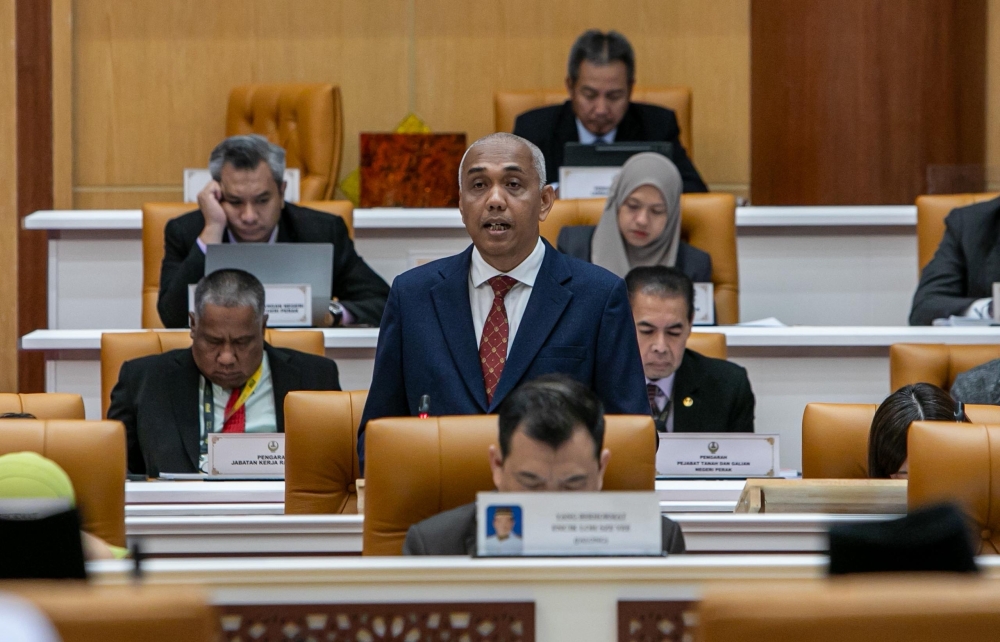IPOH, Sept 9 — There is no culture of gangsterism in boarding schools in Perak that contributes to bullying, the State Legislative Assembly was told today.
State Education, Higher Education, Youth and Sports Committee chairman Khairudin Abu Hanipah said this was confirmed following investigations conducted by the State Education Department and information obtained from the police.
Khairudin, who is also the Belanja assemblyman, said bullying cases in boarding schools usually stem from dissatisfaction and communication disputes among students.
“There are several categories of bullying that commonly occur in schools, namely physical bullying such as hitting, pushing, kicking, or damaging the victim’s belongings, and verbal bullying such as the use of harsh words, mockery, insults, or threats.
“We also see social bullying, where perpetrators deliberately isolate, exclude, or spread rumours to humiliate others, as well as cyberbullying through social media, messages, emails, or online games to harass, threaten, or embarrass victims on a continuous basis.
“Meanwhile, sexual bullying involves repeated acts of humiliation, threats, or sexually suggestive remarks directed at the victim,” he said.
He stressed that bullying should not be viewed as an isolated incident but rather as a pattern of aggressive behaviour that is deliberate, repetitive, and involves an imbalance of power aimed at harming victims physically, mentally or emotionally.
Khairudin was responding to an oral question from Manong assemblyman Berhanudin Ahmad, who had asked whether gangsterism exists in Perak’s boarding schools.
A total of 85 bullying cases were recorded in Perak throughout 2024, including 23 cases outside school, nine cases involving teachers and 53 cases that occurred in schools.
From January to August this year, 49 bullying cases were reported, including 14 cases in hostels involving 14 schools, while 30 cases took place in regular schools.
To curb and prevent bullying in schools and hostels, Khairudin said several immediate measures have been implemented, including strengthening the role of wardens.
“Each school hostel will now appoint wardens based on the ratio set by the Ministry of Education, requiring a minimum of three wardens, with an additional warden for every 50 students.
“Any vacancy due to resignation, retirement, or transfer must be filled promptly to ensure smooth hostel management.
“Wardens will serve on a duty roster to ensure their presence at all times, and each duty warden must record observations on safety, cleanliness, and discipline in a dedicated logbook,” he said.
He added that hostel monitoring has also been tightened, with rules displayed prominently in areas easily visible to students.
“In addition to the school’s complaint box, each hostel will have its own, placed in an accessible location for both students and teachers.
“Wardens on duty must check these boxes regularly to ensure complaints are acted upon immediately by hostel administrators.
“All movements of boarding students in and out of hostels must now be logged so that their whereabouts can be tracked at any time,” he said.
He also said inspections and roll calls will be carried out regularly, assisted by duty supervisors during both morning and evening sessions.





